The Internet of Things has come a long way since Kevin Ashton, a British technology pioneer, coined its name in 1999. Thanks to the level of sophistication available to embedded devices with sensors, significant advancement in cloud computing, AI and the emergence of various IoT development platforms.
IoT captures big data which in turn is used to drive decisions and improve operational efficiency. Since this value is recognized, IoT is used across a wide range of industries including automotive, manufacturing, healthcare, retail and building automation.
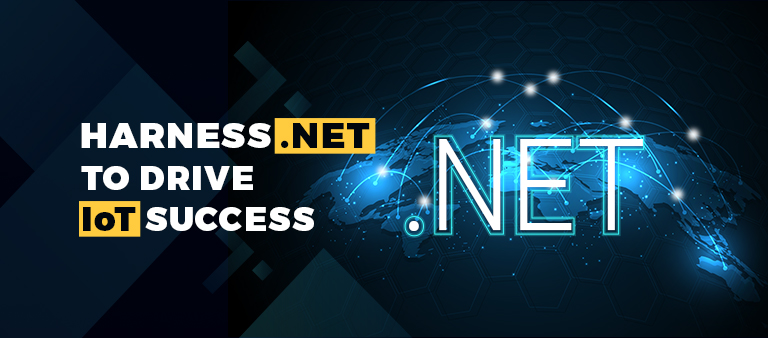
With the increasing pace of IoT adoption, the demand for IoT development tools and platforms are also on the rise. In this blog we will be discussing one such platform that is secure and can be used to build IoT systems – .NET IoT development platform.
Let’s have a look at the reasons why you should be using .NET development platform for your next IoT project:
#1 Enterprise-grade IoT with Meadow
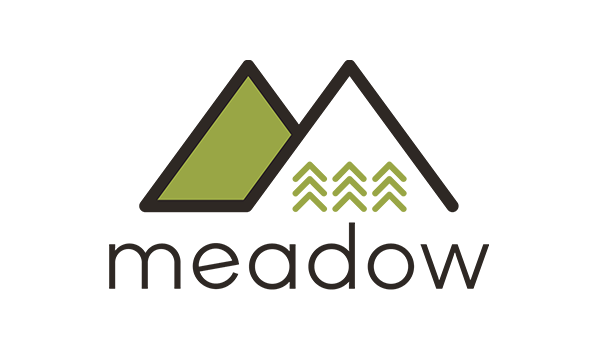
Meadow is a full-stack .NET standard IoT platform which allows you to use your existing C# skills to build embedded solutions. The best thing about Meadow is that it is open source and it is fully compatible with IDEs such as Visual Studio or Visual Studio Code.
So, you can use it with the IDE of your choice to quickly create IoT solutions. Besides, you can also integrate its rich hardware ecosystem with your favorite cloud, such as Azure.
This defense-grade IoT platform allows you to run apps targeting the .NET standard on embeddable microcontrollers.
#2 .NET IoT Libraries
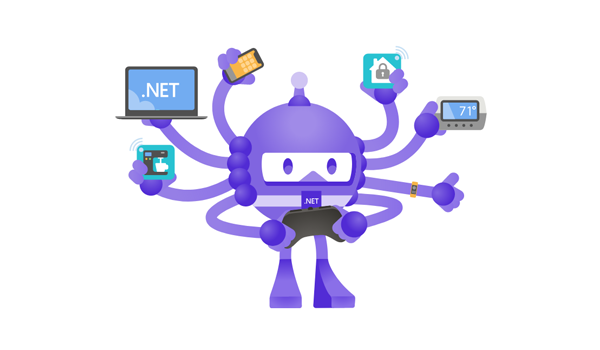
These open source libraries are cross-platform and allow you to build IoT applications that can run on HummingBoard, Pine A64, Raspberry Pi, among others. They support hundreds of sensors, displays and input devices that use GPIO, SPI, I2C, PWM, and serial port interfaces.
Supported devices include DHT temperature and humidity sensors, accelerometers, gas sensors, RFID modules, and more. These libraries also support complex hats like GrovePi, Adafruit Seesaw, and Sense HAT.
Another benefit is that you can transform your regular PC or Mac into an IoT device with specific adapters. This makes it apt for building your application prior to deploying on smaller embedded devices.
#3 Windows 10 IoT Core
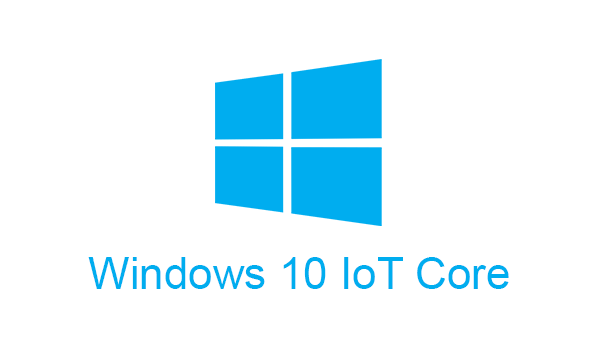
The Windows 10 IoT Core leverages the Universal Windows Platform (UWP) and Windows 10 common core architecture to help you build awesome IoT applications. You can build apps that run on Raspberry Pi, MinnowBoard MAX, DragonBoard 410c, and more.
Apart from providing APIs for your board’s GPIO pins, UWP also offers a UI framework that helps you write responsive apps that support various screen sizes and interaction models.
#4 Write C# apps with .NET nanoFramework™
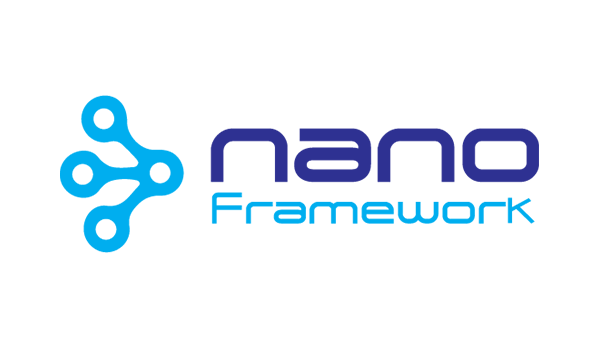
.NET nanoFrameworkTM is a free and open-source platform that enables you to write C# applications for constrained embedded devices.
It is suitable for many types of IoT projects including complex industrial equipment, IoT sensors, wearables, academic proof of concept, robotics, etc. It also allows you to write, deploy, and debug your code directly on real hardware using Visual Studio.
It includes a reduced version of the Common Language Runtime (CLR) and features a subset of the .NET base class libraries along with the most common APIs included in the Universal Windows Platform (UWP). Thus, it allows you to reuse code from desktop applications, IoT core applications or any other open source projects.
#5 The supportive .NET community

As a developer you know how important it is to have a community that is ready to share their experiences or ready to discuss the questions that you pose. For millions of .NET developers around the world including you, luckily you have got a supportive community with thousands of knowledgeable developers with professional hands-on experiences.
So, you can expect quick solutions to your challenging questions on StackOverflow or Github from your experienced .NET IoT developer counterparts across the globe.
Final Words!
So, you now know some of the top benefits of using .NET IoT development platform for your embedded applications. With .NET you would find all the required documentation, tools and a great developer ecosystem.
Are you going to use .NET for your next project on embedded systems? Please feel free to share your thoughts in the comment below.
Would you like to collaborate with our .NET developers for any upcoming embedded solutions? Let’s connect!


